Mira Nair Quotes & Sayings (Page 3)
Mira Nair quotes and sayings page 3 (68 year old director). Here's quote # 21 through 30 out of the 54 we have for her.
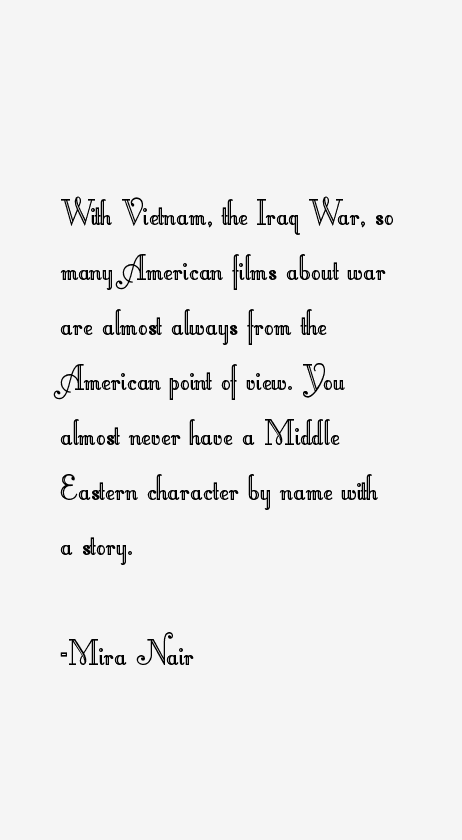
“With Vietnam, the Iraq War, so many American films about war are almost always from the American point of view. You almost never have a Middle Eastern character by name with a story.”
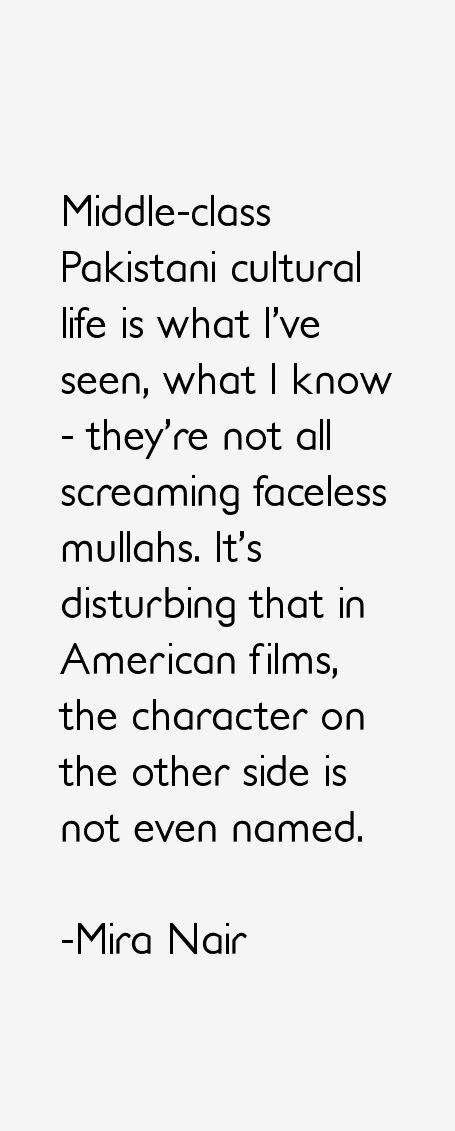
“Middle-class Pakistani cultural life is what I've seen, what I know - they're not all screaming faceless mullahs. It's disturbing that in American films, the character on the other side is not even named.”
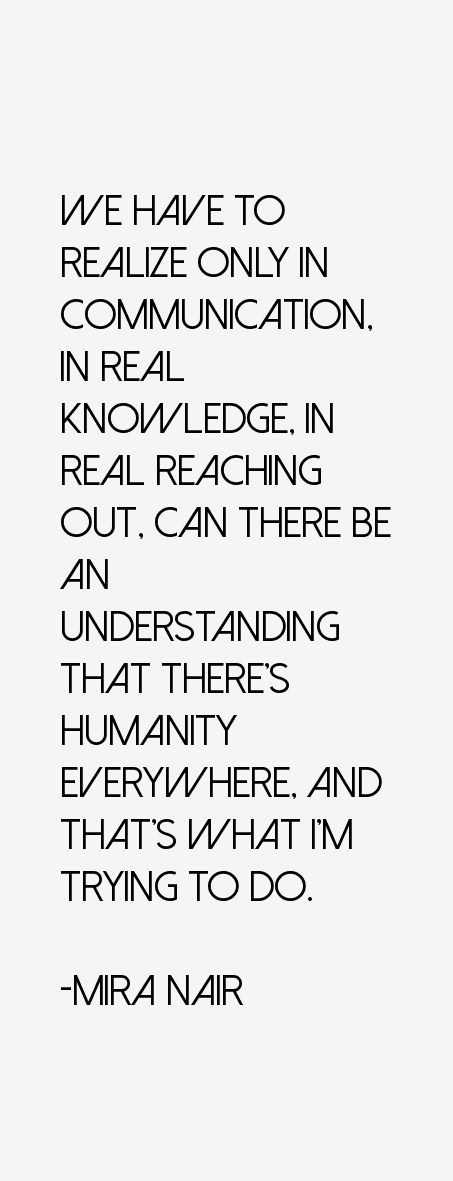
“We have to realize only in communication, in real knowledge, in real reaching out, can there be an understanding that there's humanity everywhere, and that's what I'm trying to do.”
“You know, the sad thing of post-9/11, which was of course horrific, was that the city in which I felt completely at home for two decades, suddenly people like us - brown people - were looked at as the 'Others.'”
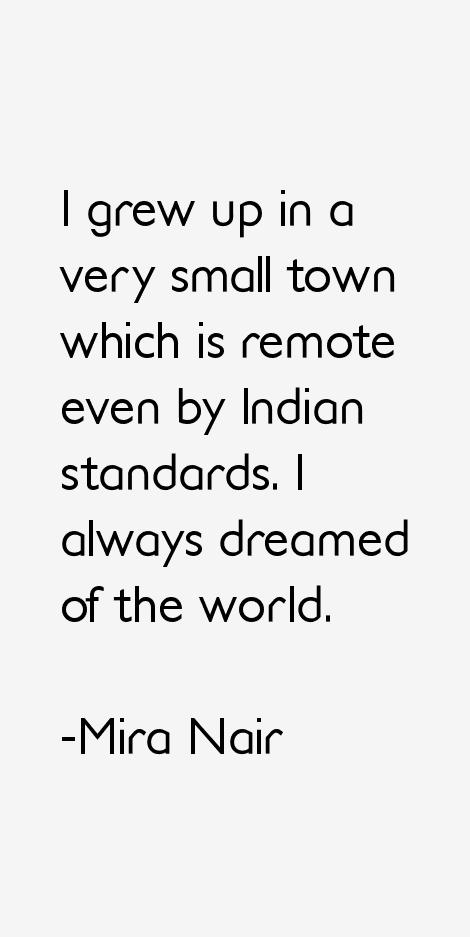
“I grew up in a very small town which is remote even by Indian standards. I always dreamed of the world.”
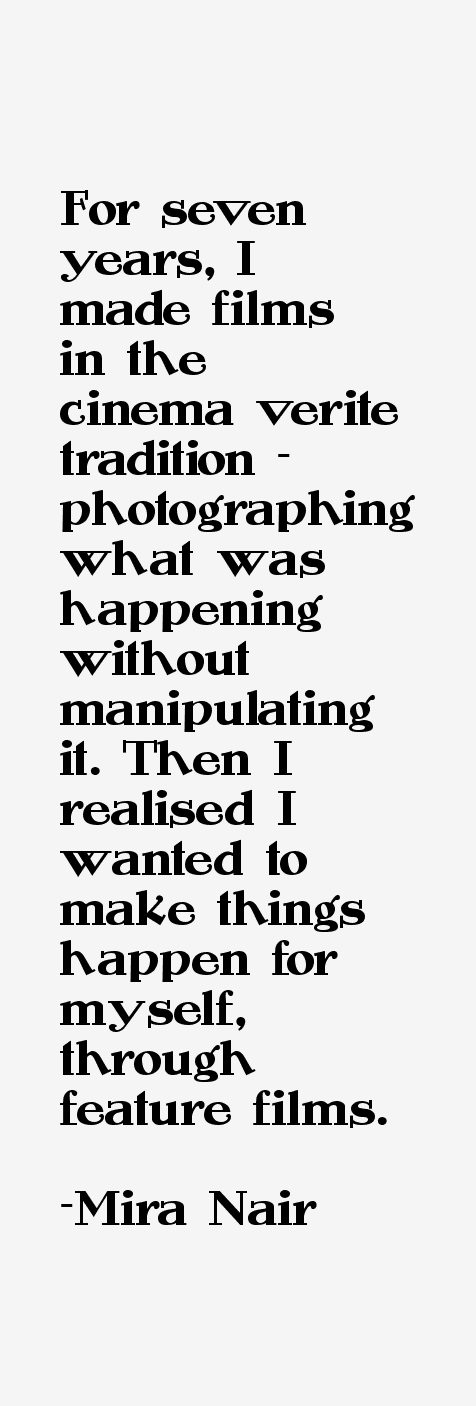
“For seven years, I made films in the cinema verite tradition - photographing what was happening without manipulating it. Then I realised I wanted to make things happen for myself, through feature films.”
“I am at home in many cultures. I live actively in three continents and I've done that for most of my life, so I just make films as I see the world, and that happens to speak to people. I do things that I want to do.”
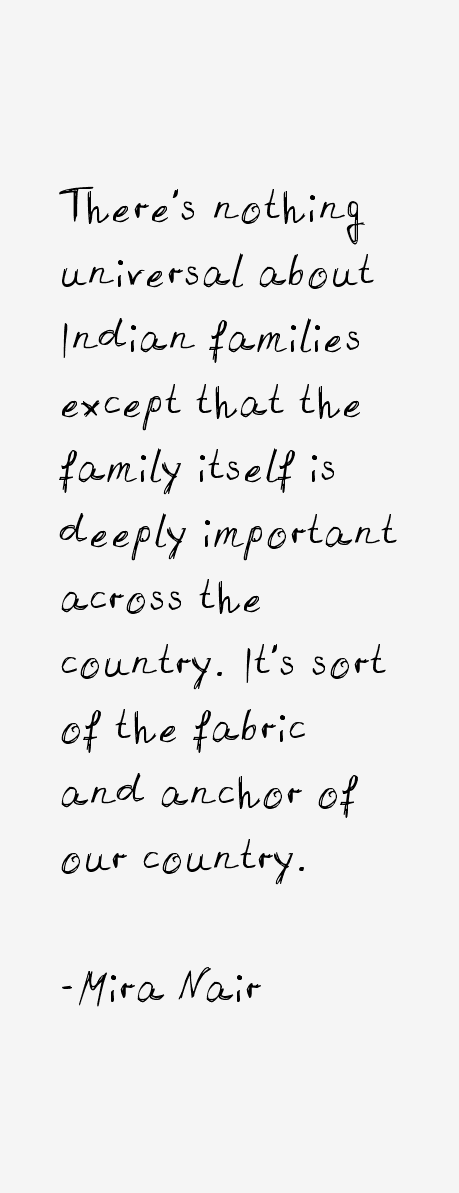
“There's nothing universal about Indian families except that the family itself is deeply important across the country. It's sort of the fabric and anchor of our country.”
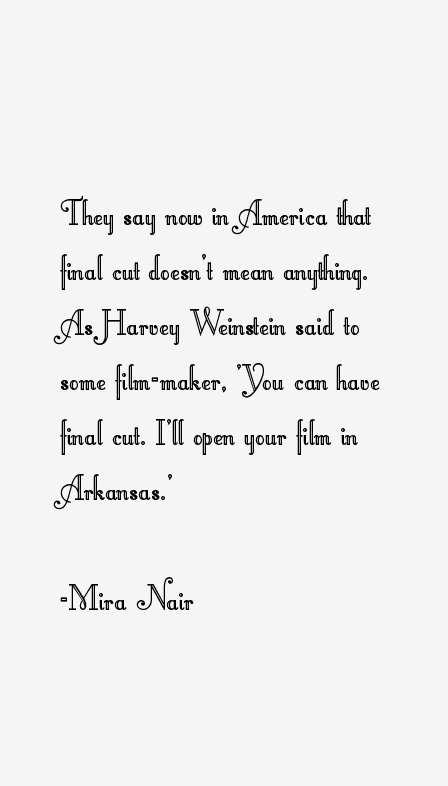
“They say now in America that final cut doesn't mean anything. As Harvey Weinstein said to some film-maker, 'You can have final cut. I'll open your film in Arkansas.'”
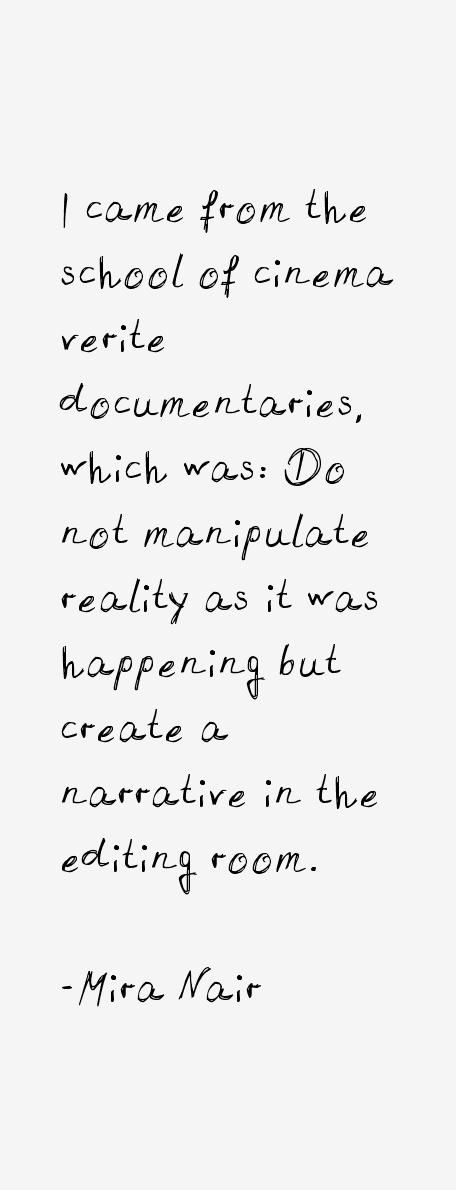
“I came from the school of cinema verite documentaries, which was: Do not manipulate reality as it was happening but create a narrative in the editing room.”
Mira Nair Quotes Rating
No Ratings Yet
Leave A Comment
























